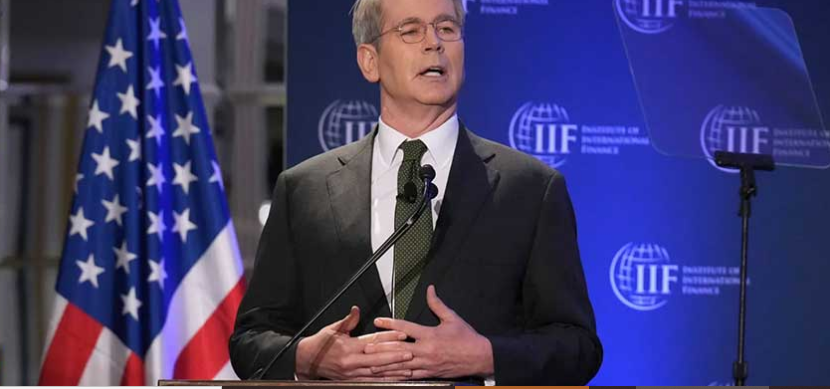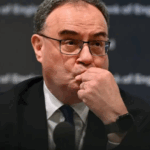US Treasury Secretary Scott Bessent has delivered a sharp rebuke to the International Monetary Fund (IMF), accusing the global lender of downplaying China’s economic impact and drifting away from its core financial responsibilities.
In a speech at the Institute of International Finance’s spring meetings in Washington, Bessent criticised the IMF’s recent External Sector Report, which concluded that global trade imbalances were easing. Labeling the assessment as “Pollyanna-ish,” Bessent accused the IMF of prioritising climate change and social policies over financial surveillance and economic stability.
“The IMF must be a brutal truth-teller—and not just to some members,” Bessent said. “It has become more focused on buzzwords than on confronting the real threats facing the global economy.”
The speech marked the Trump administration’s first major statement on its approach to reshaping the IMF and World Bank. While Bessent clarified that the United States has no intention of leaving the Bretton Woods institutions, he stressed that Washington would push for deep reforms, including placing American-backed candidates in key leadership roles.
Bessent reserved his strongest criticism for the IMF’s stance on China, calling it “absurd” that the country remains classified as a developing economy eligible for financial support. He accused the IMF of turning a blind eye to China’s massive trade surpluses, export-led growth, and what he described as “globally distortive policies” and “opaque currency practices.”
“We will not abide the IMF failing to critique the countries that most need it—principally, surplus countries like China,” Bessent said.
His comments come amid rising trade tensions between the US and China. The White House has recently imposed sweeping tariffs—up to 145%—on a range of Chinese imports, citing what it claims are unfair trade practices and suppressed domestic demand in China.
Bessent also took aim at the IMF’s growing involvement in climate and social policy initiatives, arguing that such issues, while important, are diverting the institution from its core mission. “Climate change and gender equality are not the IMF’s responsibility,” he said. “The focus should be squarely on financial stability and trade imbalances.”
The remarks come at a time of heightened uncertainty within the IMF and World Bank, as staff face concerns over potential funding cuts and the future direction of programmes focused on development, environment, and equity.
Bank of England Governor Andrew Bailey, also speaking in Washington this week, echoed parts of Bessent’s analysis. He acknowledged that China’s export-heavy economic model was “not sustainable forever” and called for a more balanced global adjustment.
As the IMF and World Bank convene to debate the future of global economic governance, Bessent made clear that the United States—its largest single shareholder—intends to use its leverage to reassert its vision of multilateral financial leadership.










